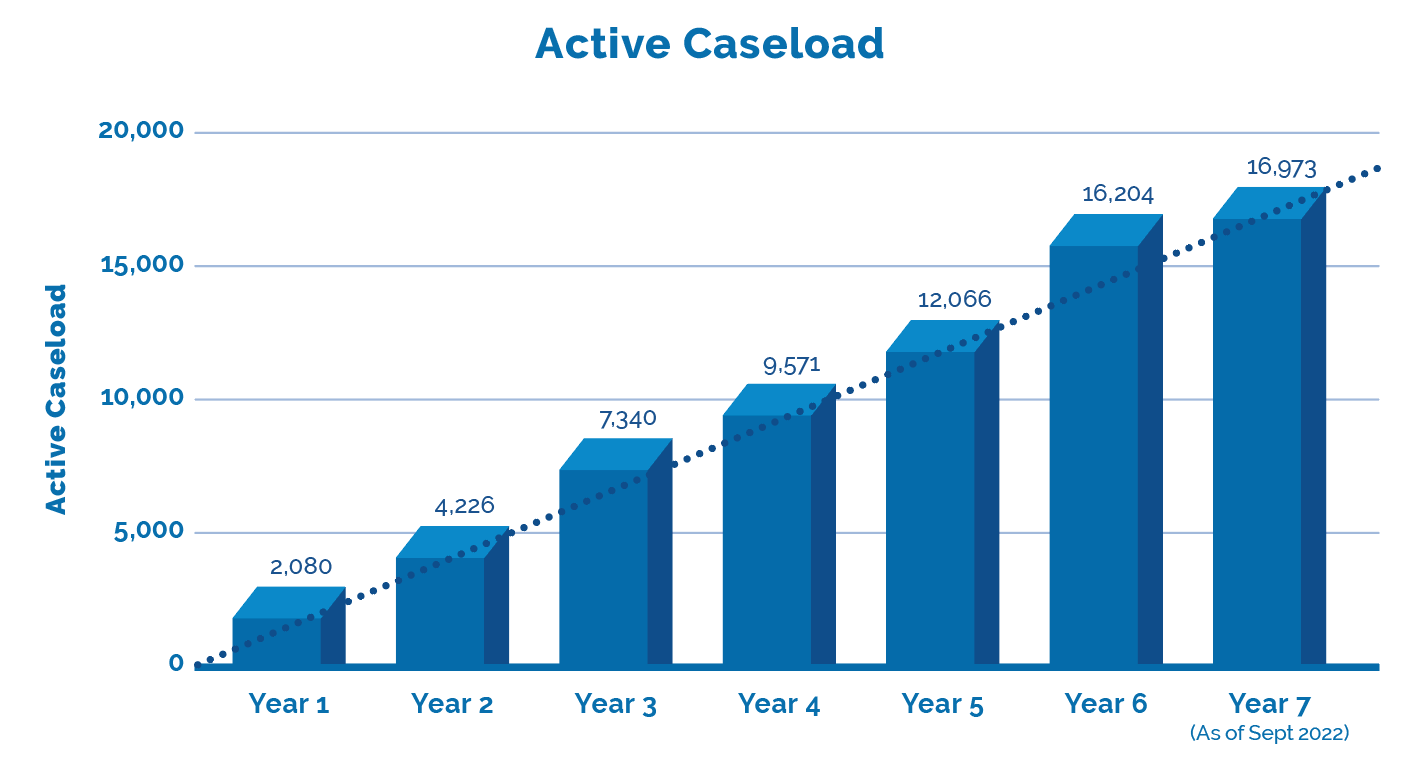
Volume. 7 Issue. 12 – April 5, 2023
This week, a detailed review of perhaps a “textbook example” of behaviour that would attract a costs award, in this instance the maximum award available. In ‘Maximum Costs Award’, the Tribunal considers the matter involving what would be described as a repeat offender, many times over. In addition, the Tribunal suggests that the applicant could well face further costs pressures in companion matter to follow.
LAT Update – What Difference Did A Year Make?

The LAT released Performance Stats up to mid-year 7 which is current through to the end of September 2022. Together with the LAT’s last update we can now provide a comparison of year over year, with projections through to the end of year 7 in this annual update. What difference did a year make?
Maximum Costs Award – The Applicant Spiegel has four current applications before the Tribunal, related to accidents in 2009, 2011 and 2019. Spiegel and Intact were said to have a lengthy history together at the Tribunal, having engaged in approximately 32 events, such as motion and preliminary issue hearings, case conferences and reconsideration requests. In 20-000279 v Intact,, the Tribunal considered whether Spiegel was entitled to medical cannabis, as recommended by his doctor. Or perhaps as allegedly recommended by his doctor?
Intact provided evidence that Spiegel “has a history of fraudulent behaviour and that his paralegal licence was revoked because he completed insurer forms himself and made false claims”. For the within matter, the OCF18 submitted was completed by Pro-Act Medical and Rehabilitation Services, which is Spiegel’s company, and he is the sole proprietor. Spiegel countered that he had submitted the OCF18 “on the doctor’s behalf”, as he was not on HCAI. Spiegel though “could not however provide an explanation as to why items were covered with white-out, why signatures appear different on the forms or why the address given for Dr. Moller was in fact the applicant’s address.”
It was further noted that Dr. Moller was in fact deceased, and there was nothing in his records supporting a recommendation for cannabis. Given the “questionable status of the OCF-18, I looked for any evidence that might suggest this treatment was recommended by a health care professional”, however ultimately there was none to be had, and accordingly Spiegel was not entitled to the matter in dispute. However, matters became decidedly worse for Spiegel, as the Tribunal considered Intact’s requests for costs.
During the course of the hearing, Spiegel’s constant interruptions or repetitive arguments were given some leniency, however when continually reminded of acceptable behaviour, he “routinely excused his disruptive actions as a result of being tired, ill and “frustrated by a system that lets him down and does not enable him to tell his side of the story”. The Tribunal however found for a fact that Spiegel “has been given an extraordinary number of opportunities to “tell his story”.”
The Tribunal was presented with evidence that Spiegel “has been found guilty of fraudulent behaviour including filing inaccurate documents with insurers and using signature stamps of professionals without authorization. As a result, his paralegal license was revoked.” In this very matter, he admitted to the same behaviour, and the Tribunal found that Spiegel “casually ignores the serious impact of his actions as he minimalizes what he has done.”
Repeated failures to attend Insurer Examinations (IEs) were found to have “circumvented many efforts to resolve the issues in dispute.” Despite many decisions on this point, both at the Tribunal and Superior Court, Spiegel “seemingly ignores any decision maker’s inference that his arguments delaying attendance to IEs are without substance and he should attend them in order to have the matters proceed.” It was determined that “the history of events related to this application shows a continual effort by the respondent to accommodate the applicant while he continues to act in bad faith, feigning an intention to comply while failing to do so to date.”
Therefore, Intact was entitled to costs, as Spiegel “has acted frivolously, vexatiously, unreasonably and in bad faith through his actions of continually delaying the insurer’s ability to assess the file through his non-compliance to attend IEs, and knowingly manipulating evidence for the purpose of unfairly persuading a decision maker, with a complete disregard for the law and the Tribunal’s processes.” Given the severity of same, Intact was awarded the maximum available costs award of $2500 for 2.5 days of hearing.
Doubtless this saga is nowhere near the end, as the Tribunal issued Orders for two remaining matters before them, in each instance making it clear that “the applicant’s constant excuses for non-compliance while stating a willingness to cooperate imply he has no intention of fulfilling any obligation to attend the IEs. Therefore, his continuing with the application appears to be in bad faith.” Further, it was made clear in both cases that “The dismissal of the applicant’s application in whole or part does not preclude the respondent from proceeding with their request for costs in accordance with the Tribunal’s Rules.”
Access inHEALTH’s research resources through Live Chat and receive your OAR. Get It now!